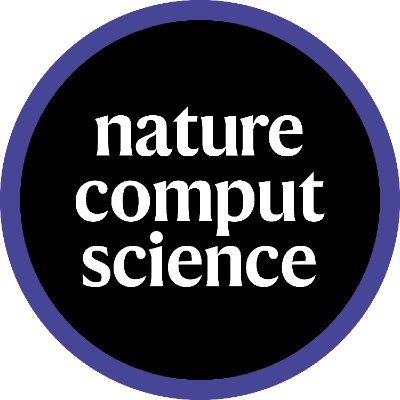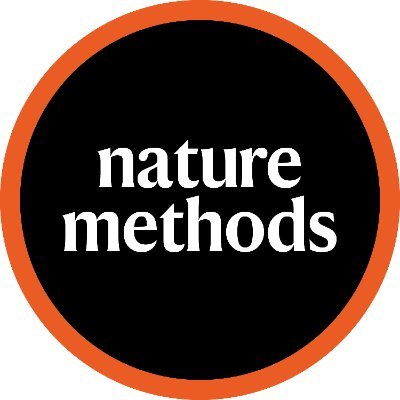
Jiangning (John) Song
@supercs08
Followers
371
Following
1K
Media
4
Statuses
427
Director of Data-driven Bioinformatics and Biomedicine Lab | Professor of Monash University | Assoc Editor of IEEE J Biomed Health Infomatics, BMC Bioinform
Melbourne, Victoria
Joined August 2017
We have 2 open RA+PhD positions in our AI-driven Bioinformatics & Biomed Lab @MonashBDI, for onshore students with strong CS, SE/ EE background & interest in medical imaging, starting any time soon, supported by Monash Major & Seed IDR Grants. Welcome to contact me if interested.
4
15
41
Check out our @NatureBiotech @NaturePortfolio News&Views with colleagues Yumeng Zhang and @supercs08 on @genentech's deep learning approach to accelerate antibiotic discovery. Congrats to Gabriele Scalia, @tbyanc, Man-Wah Tan, Aviv Regev, @Yoshua_Bengio and team on this great
0
6
46
📢Xiangliang Zhang and colleagues evaluate bias in AI-generated medical text, revealing disparities across race, sex, and age, and propose an optimization method to enhance fairness without compromising performance. https://t.co/3vi3F4Id30 🔓 https://t.co/XiBWNVnFay
nature.com
Nature Computational Science - This study evaluates bias in AI-generated medical text, revealing disparities across race, sex and age. An optimization method is proposed to enhance fairness without...
1
1
3
Happy to announce our special issue on "Application of large language models in genome analysis", now live on @GenomeBiology. Honored to serve as a guest editor alongside @supercs08! We welcome your manuscript submissions to this groundbreaking collection. https://t.co/ICYZkYGhNb
1
6
15
Two absolutely fantastic bioimage analysis papers out today offering exceptional, generalizable tools for segmentation--Cellpose3 and Segment Anything for Microscopy. (1/3)
2
71
284
Excited to share PoET-2, our next breakthrough in protein language modeling. It represents a fundamental shift in how AI learns from evolutionary sequences. 🧵 1/13
1
38
204
Self-iterative multiple instance learning enables the prediction of CD4+ T cell immunogenic epitopes 1. ImmuScope is an innovative deep-learning framework designed to predict CD4+ T cell immunogenic epitopes with high accuracy. It integrates multi-allelic and single-allelic data
1
1
2
How to write a grant? 1. Write it for the reviewer, not you, the applicant. 2. Communicate in stories. 3. Make your story cohesive—leave no puzzling gaps. 4. Make your story resonate to keep the reviewer reading. 5. Accept chance and noise in peer-review. https://t.co/wHZ065DNlm
16
505
2K
- DrugDAGT accurately predicts synergistic drug combinations for SARS-CoV-2 treatment. - We expect DrugDAGT to accelerate the discovery of safe and effective drug combinations for complex therapeutic applications. @YaojiaChen0807
0
0
2
- We expect DrugDAGT to accelerate the discovery of safe and effective drug combinations for complex therapeutic applications. Paper: https://t.co/VauyRsd55T Code:
github.com
Contribute to codejiajia/DrugDAGT development by creating an account on GitHub.
1
0
3
- DrugDAGT effectively identifies key local structures critical to DDI outcomes, as evidenced in interactions involving ketoconazole and loxoprofen with various drugs. - DrugDAGT accurately predicts synergistic drug combinations for SARS-CoV-2 treatment.
0
0
0
- DrugDAGT demonstrates significant improvements in DDI prediction for both warm-start and cold-start scenarios, leveraging the combined strengths of the graph transformer and contrastive learning frameworks.
0
0
0
We introduce DrugDAGT, a new machine learning-based tool that leverages a dual-attention graph transformer framework with contrastive learning to predict multiple types of drug-drug interactions (DDIs). Work published in @BMC Biology
5
0
7
- Fine-tuning EPACT on 3D data identifies binding hotspots within the TCR-pMHC complex and corroborates the presence of T cell cross-reactivity. - EPACT is anticipated to accelerate the development of TCR-based immunotherapies and vaccines for infectious diseases and cancers.
0
0
1
- It substantially improves the prediction of TCR binding specificity for unseen epitopes using the contrastive and transfer learning framework. - The predictions for SARS-CoV-2 responsive T cells align well with the surge in spike-specific immune responses after vaccination.
1
0
2
Our latest work published @NatMachIntell introduces a bioinformatic tool to decipher the interaction between paired CD8+ T cell receptors and peptide-MHC complexes, and can predict for unseen epitopes. @Jamie_Rossjohn @MarkGerstein Paper:
nature.com
Nature Machine Intelligence - Accurate prediction of T cell receptor (TCR)–antigen recognition remains a challenge. Zhang et al. propose a contrastive transfer learning model to predict...
3
11
55
Our global analyses find despite a decline in absolute PM2.5 concentrations, suburban and urban areas in very-high-HDI regions experienced a consistent increase in exposure inequality. https://t.co/PZFTBqAWoX Congrats @yu_wenhua and co-authors!
0
7
27
Genomics 2 Proteins portal: a resource and discovery tool for linking genetic screening outputs to protein sequences and structures | @naturemethods - Genomics 2 Proteins (G2P) portal, linking 20,076,998 genetic variants to 42,413 protein sequences and 77,923 structures (58,027
0
13
43
It’s a lonely job, leading a research group (professor, principal investigator, group leader – whatever you call it). You talk all day with everyone, but you’re mostly alone with the doubts and risks of the biggest decisions. Doesn’t have to be this way and I’d love to change it.
46
95
2K
Deep learning approaches for non-coding genetic variant effect prediction: current progress and future prospects @BriefingBioinfo 1/ This review explores state-of-the-art deep learning methods for predicting the effects of non-coding genetic variants, highlighting their growing
0
2
3











